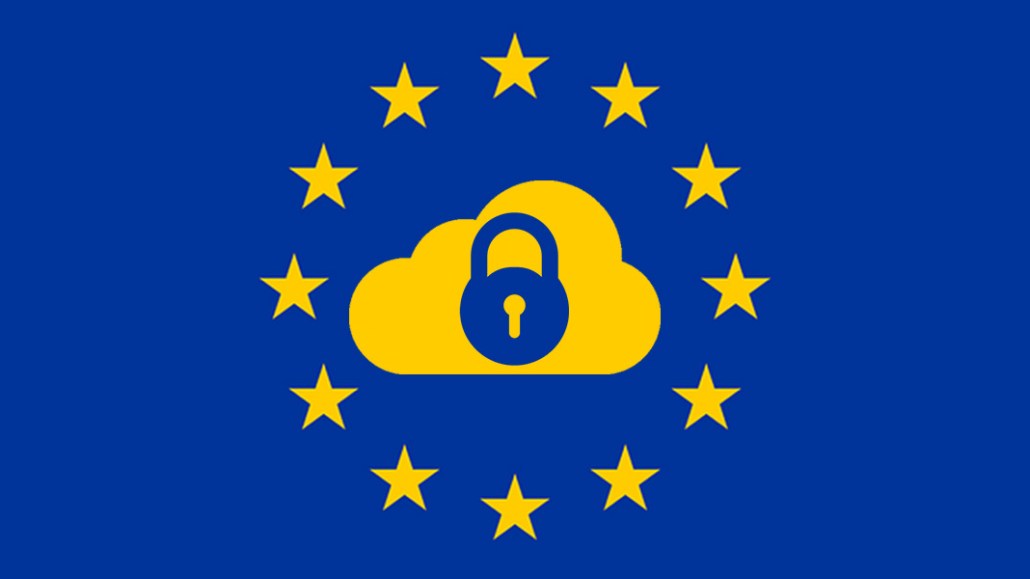Save 50% on a 3-month Digiday+ membership. Ends Dec 5.

While media attention has focused on the General Data Protection Regulation, the European Union’s new data protection laws, another privacy measure is stoking publishers’ fear: the ePrivacy regulation, known as the EU cookie law.
Many European publishers are up in arms about the current draft of the new ePrivacy law, which is far stricter than the existing one. In May, 12 publishers, including the Financial Times, the Guardian, The Telegraph, Le Monde and Spiegel, wrote to the European Parliament, arguing that the proposed law will make it harder to gain consent to use cookies for site analytics, reporting and advertising, limiting their ability to earn digital revenue.
Here are some of the proposal’s main points of tension:
Browsers as gatekeepers
To eliminate those annoying banners that ask people for their consent to use cookies, the European Commission has suggested users opt in or out of cookies in their browser settings. For example, if a user visits a publisher’s site and a banner appears that asks for permission to use cookies, even if the user clicks yes, that publisher still cannot use cookies unless the user’s browser settings reflect that choice — a proposal that doesn’t sit well with publishers.
Given there is no line of direct communication between publishers and browsers, some publishers fear they will be held ransom. For example, browsers could offer publishers the chance to whitelist their sites for a price.
“We are pretty worried. We would fully support any legal framework that gives back control and data transparency to the user,” said Stefan Betzold, managing director of Axel Springer title Bild. “But the current discussions in Brussels are about cookie technology and gateway control and unfortunately not about giving transparency to the user. The ‘browser supremacy’ will give a gatekeeper role to browser providers, who mainly come from the U.S. or belong to U.S. platforms. This might have major effects on the open and free advertising-financed internet in the long term.”
The platform effect
Whether the proposed ePrivacy law will hurt or help the likes of Google, Facebook and Amazon is debated. German publishers, who are particularly outspoken when it comes to the duopoly, argue that the proposal will advantage walled gardens further over publishers because it’s easier for Google, Facebook and Amazon to get consumers to opt-in at scale because they have masses of user login data (and don’t rely on third-party data like publishers) and the ability to directly communicate with users of their products.
“Google and Facebook may lose some capacity for collecting data, but compared to publishers, which are far more reliant on third-party cookies, they will still be much better off,” said Christoph Fiedler, head of legal affairs at the European Magazine Media Association.
Ad position: web_incontent_pos1
Digital Content Next, a U.S. trade association for premium publishers, takes the opposite view, arguing that Google and Facebook’s ability to collect and use consumer data will be “dramatically curbed” — a message Digital Content Next has circulated to its members. The argument is that Google and Facebook would be restricted from targeting ads based on data from services such as WhatsApp, Gmail and Messenger unless they have consent from all parties. Monetizing messaging apps and email isn’t an area where publishers compete with the duopoly directly, but when it comes to online advertising, where they do, Google and Facebook will face the same challenges as them.
More in Media

What publishers are wishing for this holiday season: End AI scraping and determine AI-powered audience value
Publishers want a fair, structured, regulated AI environment and they also want to define what the next decade of audience metrics looks like.

Digiday+ Research Subscription Index 2025: Subscription strategies from Bloomberg, The New York Times, Vox and others
Digiday’s third annual Subscription Index examines and measures publishers’ subscription strategies to identify common approaches and key tactics among Bloomberg, The New York Times, Vox and others.

From lawsuits to lobbying: How publishers are fighting AI
We may be closing out 2025, but publishers aren’t retreating from the battle of AI search — some are escalating it, and they expect the fight to stretch deep into 2026.
Ad position: web_bfu




